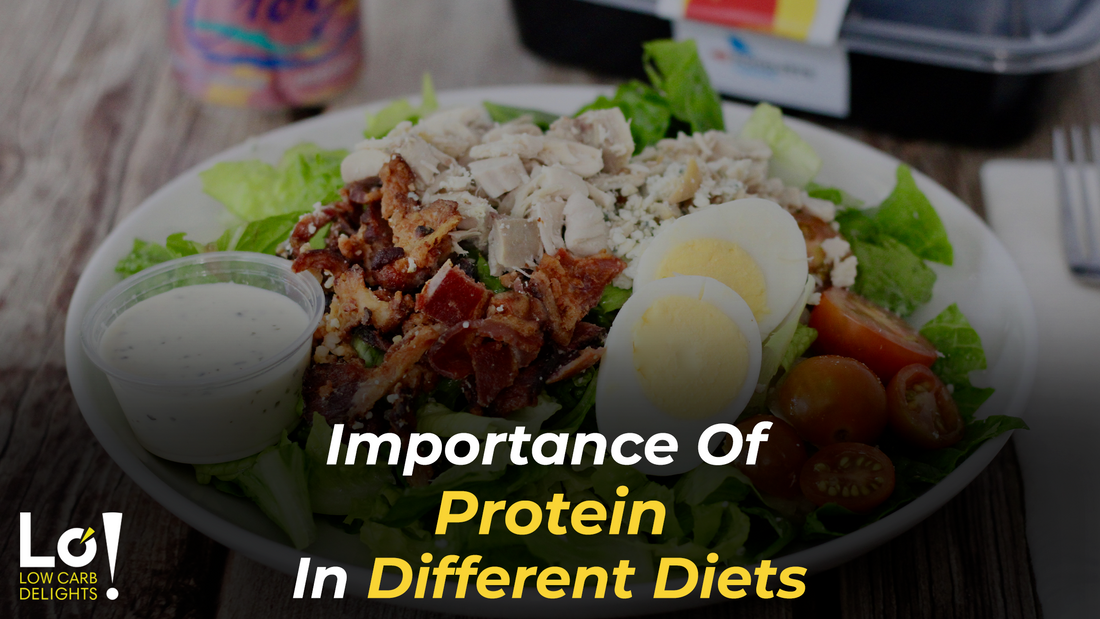If you surf the internet, you will probably find tons of diets that claim different results. You might want to follow one for weight loss, one for diabetes, or one to simply detox your body. However, what is important is for you to focus on the nutrient content of these diets, especially macronutrients. Macronutrients are the nutrients that you need to consume in large quantities in order to maintain proper bodily functions. Protein, along with fat and carbohydrates, makes up the class of macronutrients.
Protein is an essential element in our diets, that helps the body repair and make new cells and also to lose weight and aid development in children. Consuming critically low amounts of protein can lead to serious complications like loss of muscle mass, reduced strength, slower metabolism and eventually, anaemia.
No matter what diet you follow, it is important to keep in mind the protein content you are incorporating into it. But how do you know the role of protein in the diet you follow and the proportion of protein you should consume? Well, here we have come up with a list of the four most common diets and their protein functions.
Role of Protein in 4 Most Common Diets
Ketogenic Diet
The Keto diet follows a low-carb, high-fat intake of macronutrients. Its objective is to shift the body’s metabolism from carbs to fat in order to achieve weight loss. The amount of protein you eat while on keto is extremely crucial.
Protein levels must be kept consistent and efficient throughout the keto diet, as it helps the body better retain ketones. Proper proportions of protein during keto offers many advantages, such as ensuring energy throughout the day, maintaining appropriate muscle mass while losing weight and keeping our immunity intact.
Paleo Diet
The Paleo Diet aims to make people eat what humans used to eat in the historic times of the Stone Age—before the farming culture began. The idea behind this diet is that the human body is inherently made to consume foods such as meat, fish, fruits, etc and consuming ‘modern’ processed foods is a ‘mismatch’ with the requirements of our body and thus leads to obesity, overweightness, and heart-related diseases.
The Paleo diet plan typically includes fruits, vegetables, lean meats, fish, nuts and seeds, and more. It excludes any processed foods, such as dairy products, refined sugar, grains, legumes, and salt, among others. If you are following a paleo diet, it is important for you to be high on proteins, since it is a crucial element that sharpens weight loss and metabolism. This diet is not the easiest one to follow at home. If you eat your meals outside or prefer takeaway, you might not be consuming as much protein as you think you are. To rectify this, there are alternate options to up your protein intake.
Lo! Protein Chef is one of the easiest protein mixes to use. It comes in the form of powder, which can be scooped into your meal mixes for breakfast, lunch, or dinner and can also be mixed in your shake preparations. It is crafted thoughtfully so that you don’t have to compromise with taste and to provide you with energy on the go!
Vegan Diet
A vegan diet’s objective is to exclude all forms of foods that involve some sort of animal cruelty or exploitation. This results in excluding all animal products- like meat, eggs and dairy products from your diet. Maintaining a consistent protein intake pattern is essential for a vegan diet when you’re trying to lose weight or simply trying to eat healthily and avoid animal products.
‘Vegan protein’ improves digestion, boosts metabolism, and maintains cardiovascular health. Some readily available sources of protein while on a vegan diet include legumes, millet, whole wheat, pistachios, peanuts, hemp seeds, kidney beans and golden peas.
Diet for Diabetes
Dietary proteins have a major role to play in diets followed to prevent or manage diabetes. It is a prevalent misconception that a part of the protein consumed is converted into blood glucose later and that a high protein diet may lead to kidney failure in people with diabetes. However, it has been proved to be not true repeatedly. In fact, for patients with Type-2 diabetes, it is ideal to consume 20-30% of energy in the form of proteins daily. The reason behind this is that high protein intake aids in glycemic control and increases the feeling of satiety to help lose weight and maintain muscle mass.
Conclusion
No matter what diet you choose to follow, it is important to beware of misconceptions. Proper protein intake must be ensured as it releases hormones into the bloodstream that give you a feeling of being full. Therefore, it keeps you active and helps you curb random cravings for snacks until your next scheduled meal.
Not all diets are protein efficient by themselves. In such scenarios, it is best to either include protein-rich foods in your meal plans or go for more convenient options, such as protein mixes. Check out, Lo! Protein Chef. It is one of the smartest and the easiest ways to incorporate proper protein into your meals, without compromising your taste.
References:
https://www.healthline.com/nutrition/meal-plans#TOC_TITLE_HDR_2
https://academic.oup.com/jn/article/145/1/164S/4585788?login=false
https://wellversed.in/blogs/articles/what-is-the-role-of-protein-in-a-keto-diet





